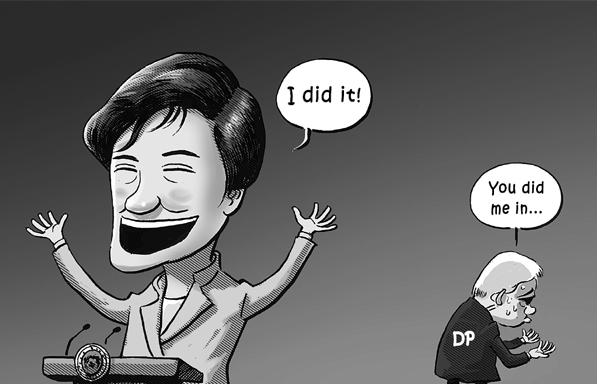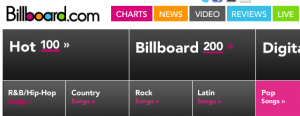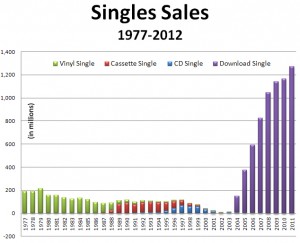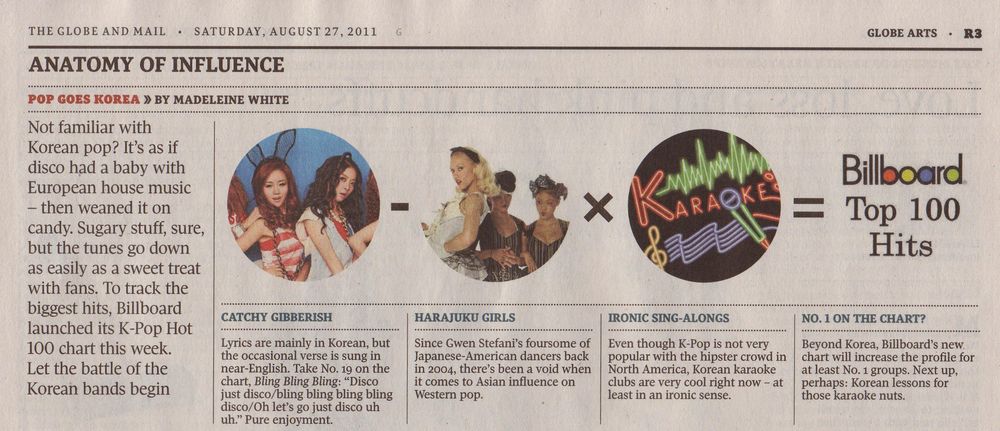I was poking around some old files the other day, when I came across an article I wrote for Billboard nearly a decade ago about MP3 players in Korea. The magazine ended up merging it with a similar story by Steve McClure about the Japanese MP3 player market, but most of my stuff made it into the published version.

Given the huge success of Samsung smartphones and other Korean devices around the world, not to mention the rise of Apple products in Korea, I thought people might be amused to read it:
The picture shows a model taking a bite out of an apple. It is part of an advertising campaign to promote the latest iriver-brand digital music player, the H10, by South Korean audio company ReignCom. The tag line is “Sweeter one.”
This ad illustrates the tough fight Apple Computer faces in Southeast Asia’s digital portable audio market.
Japanese and South Korean electronics companies are meeting the challenge posed by the extraordinary popularity of Apple’s iPod–in their home markets and elsewhere–with a new generation of portable players.
<snip>
In South Korea, the primacy of flash-memory digital music players made it one of the few territories in the world where the iPod did not dominate, until this year. At its peak, in 2003, ReignCom claimed to have more than 50% of the South Korean portable-music-player market.
But like other South Korean electronics firms, ReignCom saw its market share slide when the low-priced iPod shuffle arrived.
Now these firms are slashing prices and adding features to their portable players to win back consumers.
ReignCom went so far as to run high-profile ads in local newspapers March 1–Korean Independence Day–calling for a “patriotic war” against the iPod.
“Our overall branding strategy is based on product innovation,” iriver director of brand marketing Hanna Young says. The H10 is still about $30 more expensive than the iPod mini, but it has a built-in FM tuner, color screen, voice recorder and digital-photo slide-show capability.
Joining the fray is South Korean heavyweight Samsung Electronics, which has declared its ambition to be the world’s top seller of portable music players by 2007. Samsung sold 1.7 million MP3 players worldwide in 2004 and is aiming for 5 million this year.
Strangely, though, Billboard took out my original lede, which mentioned Reigncom’s ad campaign that used porn actress Jenna Jameson. Maybe they were shy?
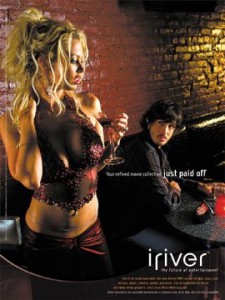
Anyhow, walking around Seoul these days, you can’t help but notice all the music stores. However, unlike in the 1990s, when they all sold, you know, music, now music stores mostly sell headphones and DJ equipment. So I guess young people are still spending as much as ever on the music they love, but they’re just spending it in totally different areas — in the tech instead of the content.
